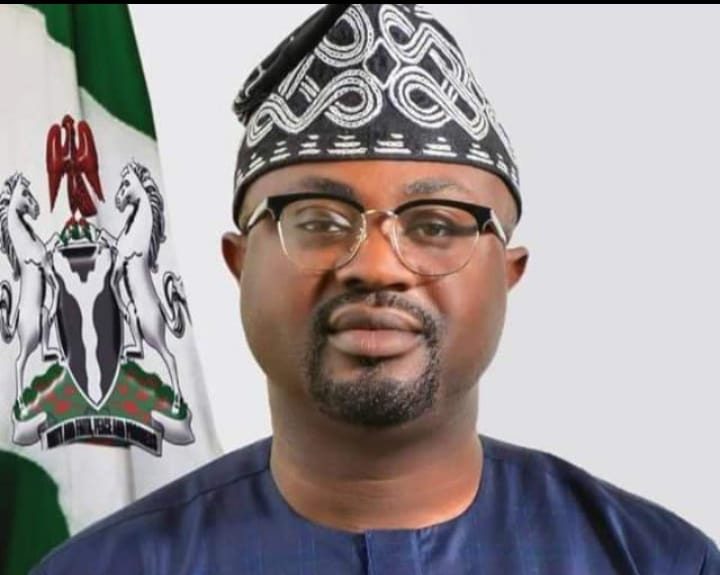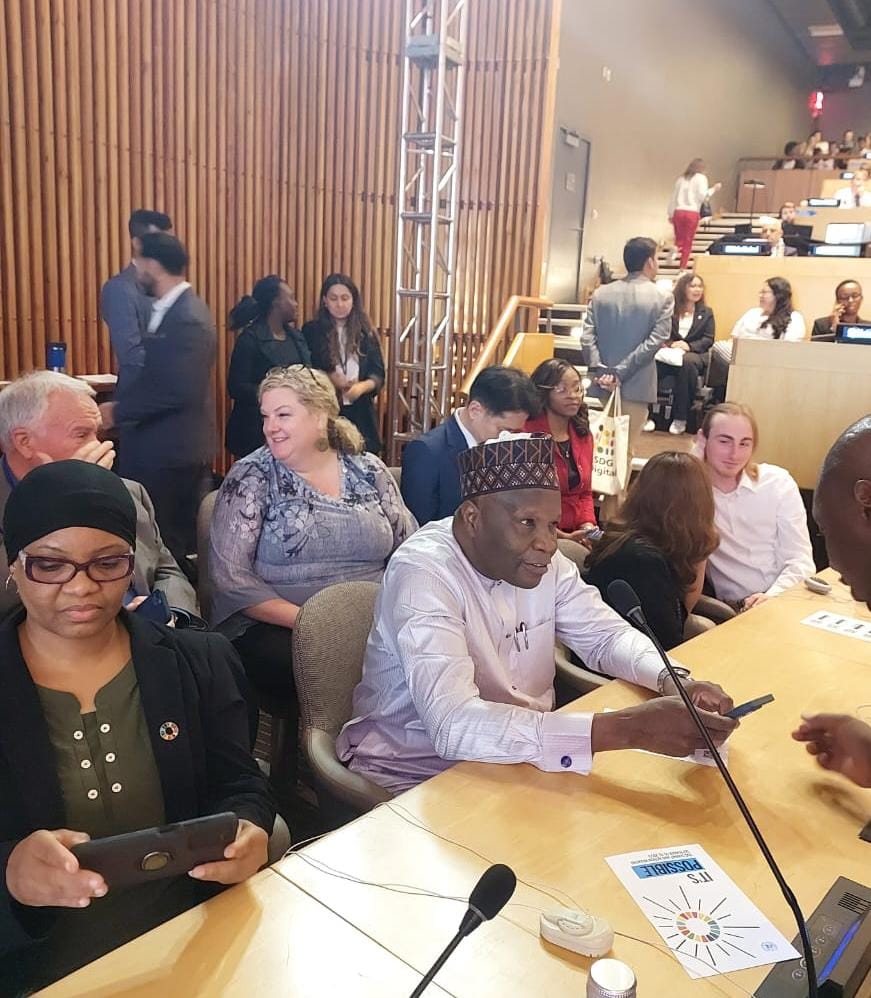Developmental
SDGs being integrated into national plans, policies Says VP Osinbajo
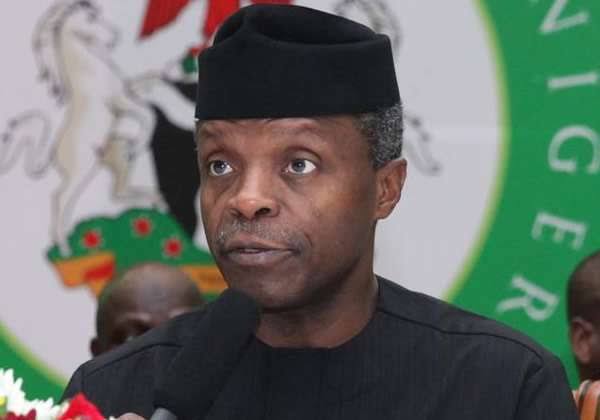
The Vice President of the Federal Republic of Nigeria, Prof. Yemi Osinbajo says Sustainable Development Goals (SDGs) are being integrated into national plans and policies to make the goals truly sustainable.
Osinbajo stated this at the inauguration of the Review of Baseline Report and Realignment of the National Statistical System with SDGs 2020 on Tuesday in Abuja.
According to him, the inauguration completes and officially initiates the process of realigning the National Statistical System with the requirements of the SDGs.
“It is as we have heard a product of the data mapping exercise, and the design and execution of the SDGs Data Bond.
“The Federal Government is committed to guaranteeing the sustained production of relevant statistical information needed for effective tracking and monitoring of SDGs in Nigeria and so fully supports the partners in this important enterprise.
“Namely, the Office of the Senior Special Assistant to the President on SDGs, the National Bureau of Statistics (NBS) and the entire National Statistical System with this Launch, we will be able to track our progress on the SDGs on an annual basis.
“Also, as this report itself observes, for the SDGs to be truly sustainable, they must be integrated into plans and policies.
“ This is precisely the approach that we have taken beginning from the Economic Recovery and Growth Plan (2017 – 2020), the National Poverty Reduction with Growth Strategy (NPGRS) the Economic Sustainability Plan (ESP).
“Our short-term response to the adverse impact of the COVID-19 Pandemic,–and now the National Development Plan (NDP)– 2021-2025 which was approved by the Federal Executive Council only last month.’’
The vice president said that NDP’s core components included human capital development, infrastructure and social development all of which were vehicles for achieving the SDGs.
He said that more specifically, the plan identified as areas of emphasis and action, agriculture, food security and rural development, water resources, sanitation, social protection and health and nutrition.
According to him, these thematic areas mirror the SDGs and anchor the NDP very tangibly to the achievement of the goals.
“Our approach ensures that the SDGs are central to our national development efforts and are indeed policy priorities for the foreseeable future.
“Clearly all of these policies and planning documents bear the imprint of the SDGs as overarching national priorities.’’
Osinbajo said that the grand ambition of the SDGs was to engender an economically sustainable, socially inclusive and environmentally resilient world.
He said that for Nigeria, and indeed Africa as a whole, the achievement of the SDGs was crucial to ending poverty, hunger, disease and safeguarding the environment,
“ For our administration, our objective of achieving sustainable development, which means creating wealth, decent jobs, reducing poverty, addressing the issues of climate change – is both consistent with the aspirations of the SDGs and central to our entire vision for the country.
“This is why in May 2019, the president made a public commitment to lifting approximately 100 million Nigerians out of poverty within a 10-year period,’’ he said.
He commended the Senior Special Assistant the President on SDGs, Princess Adejoke Orelope-Adefulire for her passion and commitment to the enormous task of meeting SDGs commitments.
Osinbajo also lauded the Statistician-General of the Federation, Dr Simon Harry, for his leadership in the important process.
In her remarks, Hajia Zainab Ahmed, the Minister of Finance, Budget and National Planning announced that the NDP 2020-2025 recently approved by the Federal Executive Council, would be inaugurated by President Muhammadu Buhari and presented to the public on Wednesday.
Ahmed was represented by the Director, Macro-Economic Analysis in the ministry, David Adeosun.
Earlier in his speech, Harry said that the report of the realignment process was considered a veritable instrument for driving the SDGs programme in Nigeria.
“ As a coordinator of the system, the NBS is determined to ensure the institutionalisation of the entire system,’’ he said.
In her address, Orelope-Adefulire said that the presence of the vice president at the event underscored the importance of the Federal Government attached to statistics as the implementation of the SDGs required statistical data.
The vice president, after inaugurating the report, also unveiled 19 ambulances to support and strengthen the healthcare system at the sub-national level.
Monitoring the 230 indicators with the 169 targets of the 17 Global Goals requires employing good strategies that would ensure resource allocation to priority areas.
To achieve this, the government initiated the process of realigning the Nigerian Statistical System with the SDGs.
This is aimed at strengthening and repositioning the NSS to ensure synergy and effective collaboration amongst data producers, suppliers and users. (NAN)
Developmental
Tinubu to visit Kaduna Thursday to inaugurate key projects
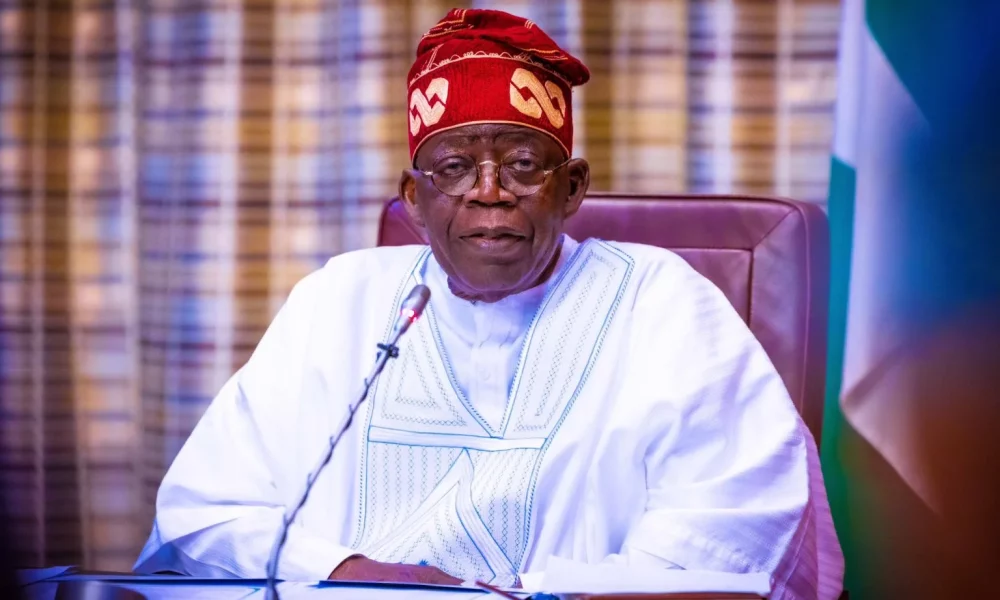
President Bola Tinubu is expected in Kaduna State Today Thursday for the inauguration of several key developmental projects executed by the administration of Gov. Uba Sani.
The News Agency of Nigeria (NAN) reports that the visit forms part of activities marking Sani’s two years in office.
The projects lined up for inauguration include the 300-bed Specialist Hospital in Millennium City, Kaduna, built by the state government to bolster the provision of healthcare services.
Tinubu will also inaugurate the Institute of Vocational Training and Skills Development in Rigachikun, road projects in Soba, and Samaru Kataf LGA’S as well as the 24-kilometre Kafanchan Township Road.
Others are the Tudun Biri Road, the 22km road linking Kauru and Kubau LGAs as well as the Vocational and Skills Training Centre in Tudun Biri.
Tinubu is also expected to unveil 100 Compressed Natural Gas (CNG) buses, as part of efforts to modernise the state’s public transportation system.
The projects are part of the administration’s focus on infrastructurde evelopment, healthcare delivery, youths empowerment, and economic growth.
The state government described the visit as a significant moment for the people of Kaduna and an opportunity to showcase ongoing efforts to transform the state through impactful governance.
Sani, who marked his second year in office this month, has prioritised human capital development, rural infrastructure, and jobs creation since taking office in 2023.
Tinubu’s visit to Kaduna State was rescheduled from Wednesday to Thursday.
He was initially supposed to visit Kaduna on Wednesday, but due to the recent attacks in Benue, he shifted his trip.
The president visited Benue on Wednesday to commiserate with the victims of the recent attacks and assess the humanitarian crisis.
During his visit to Benue, Tinubu met with stakeholders, including traditional rulers, political and community leaders, and youth groups, to seek lasting solutions to the hostilities.
He also condemned the ongoing violence and called on the residents to embrace peace and mutual understanding.
NAN recalls that the Benue Government had declared a work-free day for Tinubu’s visit, urging the residents to turn out in large numbers to welcome him.
Developmental
Livelihood: Sokoto Govt. expands youths, women empowerment schemes
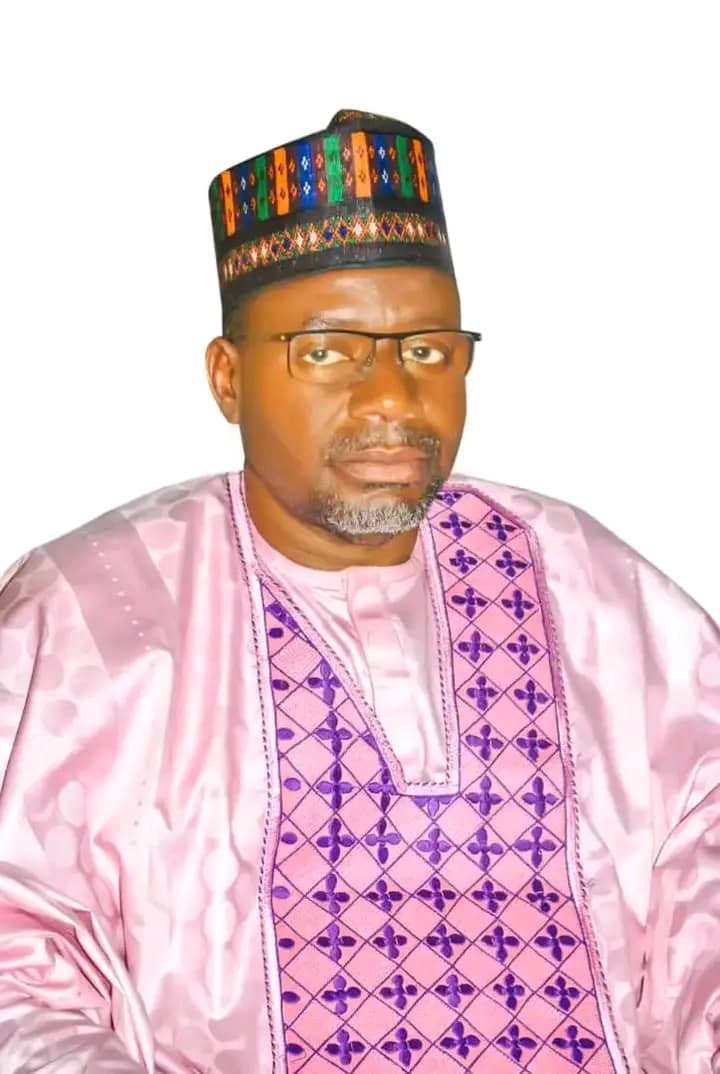
LivelihoodsThe Sokoto State Government, says it will expand the youths and women empowerment as well as its poverty reduction programmes in the state to sustain achievements already recorded.
Alhaji Ibrahim Dadi-Adare, the state Commissioner for Local Governments and Community Development, disclosed this in an interview with the News Agency of Nigeria (NAN), on Wednesday in Sokoto.
Dadi-Adare explained that the measure was aimed at capturing more population especially in the rural areas.
He disclosed that the ministry had facilitated skills acquisition trainings and distributed working tools to about 2,000 persons last year, adding that in view of the successes recorded the ministry planned to expand the schemes.
He also said that beneficiaries had engaged in small scale businesses which impacted positivity on their lives and that of their families.
”We are upscaling the initiative in partnership with the 23 local government councils, ministries of sports and youths development, Women and Children Affairs and Sokoto State Small Scale and Medium Enterprises Development Agency (SOSMEDA) along with others,” he said.
The commissioner lauded the leadership of Gov. Ahmed Aliyu, for providing the dividends of democracy to the people of the state.
According to him, about roads spanning 30 kilo metres have been rehabilitated within the metropolis, while some in rural areas have also been done and work ongoing in others, by this administration.
”We have also renovated about 42 boreholes to restore adequate water supply to the state and its environs.
”Schools were also renovated and furnished by this administration to enhance teaching and learning in the state,” he said.
Dade-Adare further disclosed that the present administration was also able to procure fertiliser, food items including millet, rice and other grains and distribute freely to residents across the state to cushion the effects of the subsidy removal.
He also disclosed that the state government procured 18-seater buses, cars, tricycles and motorcycles to ease transportation in and outside the state.
He further disclosed that the government renovated health facilities and provided medications as well as procured Toyota Hilux vans for security operatives to enhance their operations in the state.
Dadi-Adare called on residents of the state to support the present administration and prayed for its increased success.
Developmental
Zulum seeks enhanced trade relations between Nigeria, Cameroon
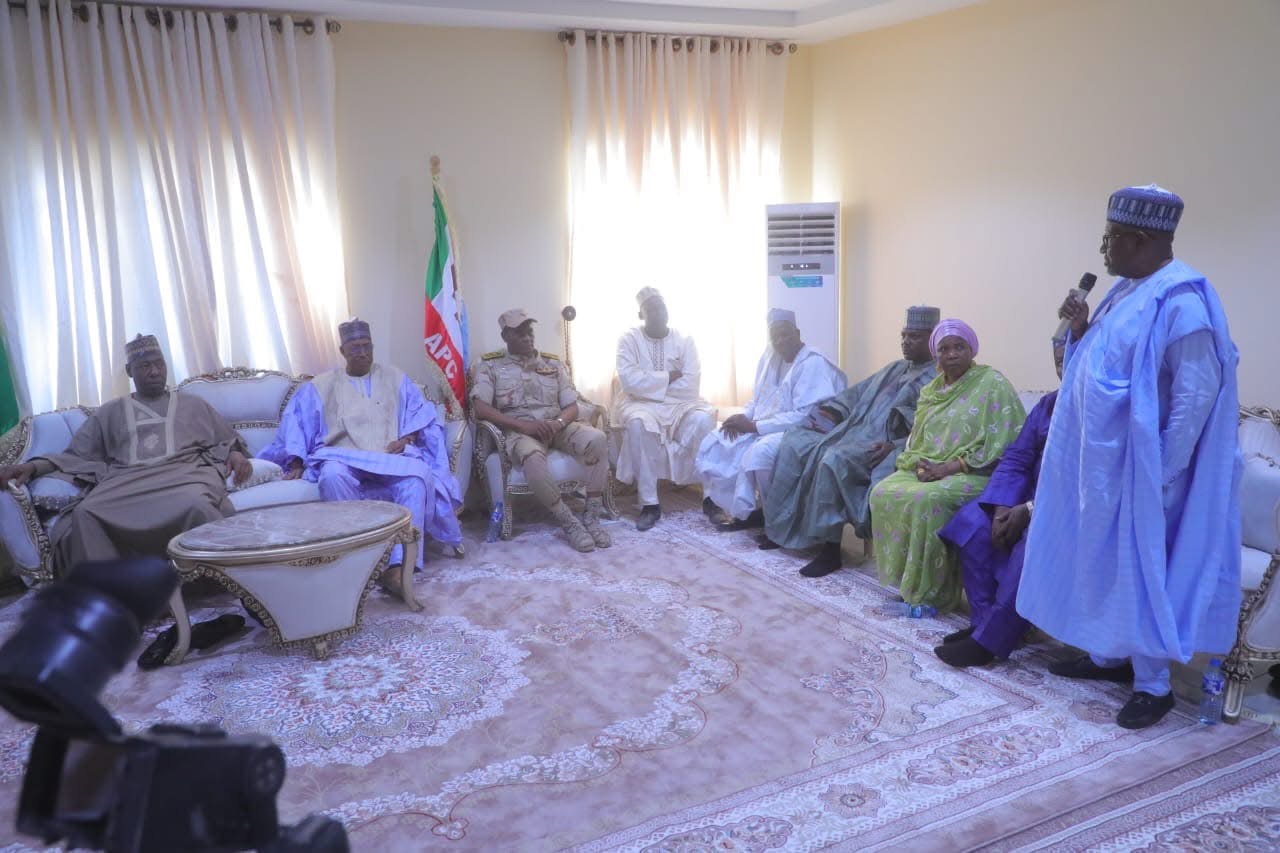
Gov. Babagana Zulum of Borno has called for enhanced trade relations between Nigeria and the Republic of Cameroon, to foster unity and economic growth.
Zulum made the call on Tuesday at a bilateral meeting between officials of the two countries in the border town of Banki.
The meeting was attended by members of the State and National Assembly from Borno State, and officials of the Cameroonian Far North region, led by Gov. Midjiyawa Bakari.
This followed the inauguration of the Banki International Cattle Market, a Memorial Secondary School, and a government lodge in the area.
Zulum highlighted the importance of facilitating trade between citizens of both nations, especially in livestock and agricultural commodities.
He assured his Cameroonian counterpart of his commitment to provide the political will needed to strengthen the economic ties.
“I want to assure you, Your Excellency, that under my leadership, I will provide the political will and commitment to drive the process,” he said.
Zulum lauded President Bola Tinubu for his commitment to promote trans-border trade, noting that steps would be taken to reduce bureaucratic barriers and ensure smooth trade flow.
According to him, Banki is set to become one of Nigeria’s free trade zones, with plans in advanced stage, adding that the Borno government would fulfill its obligations to support the initiative.
He also commended President Paul Biya for his country’s role in managing Nigerian refugees, and called for the establishment of a civil authority to facilitate the safe return of over 20,000 displaced persons to their communities.
Responding, Bakari commended the improved security situation in the area.
He underscored the importance of peace building and sustainable development, adding that Banki International Cattle Market could also boost Cameroonian economy.
“We will ensure that similar projects are replicated in our region,” Bakari said.
He proposed holding another bilateral meeting in Maiduguri or Marwa in Cameroon, to discuss strategies for strengthening regional cooperation to rebuild the economy disrupted by the Boko Haram insurgency.
The President of Borno State Chamber of Commerce, Alhaji Ahmed Ashemi, and the Senior Vice President of the Regional Council of the Far North, Prof. Jalou, emphasised the need for collaboration between the two nations.
They said that such relationships would maximise the benefits of the African Continental Free Trade Area (AfCFTA).
The News Agency of Nigeria (NAN) reports that the meeting was part of ongoing efforts to enhance cross-border trade and promote regional development.
-

 Headlines4 years ago
Headlines4 years agoFacebook, Instagram Temporarily Allow Posts on Ukraine War Calling for Violence Against Invading Russians or Putin’s Death
-

 Headlines4 years ago
Headlines4 years agoNigeria, Other West African Countries Facing Worst Food Crisis in 10 Years, Aid Groups Say
-

 Foreign4 years ago
Foreign4 years agoNew York Consulate installs machines for 10-year passport
-

 News1 year ago
News1 year agoZero Trust Architecture in a Remote World: Securing the New Normal
-

 Entertainment3 years ago
Entertainment3 years agoPhyna emerges winner of Big Brother Naija Season 7
-

 Headlines1 year ago
Headlines1 year agoNigeria Customs modernisation project to check extortion of traders
-

 Entertainment2 years ago
Entertainment2 years agoMovie download platform, Netnaija, announces closure
-

 Economy2 years ago
Economy2 years agoWe generated N30.2 bn revenue in three months – Kano NCS Comptroller


